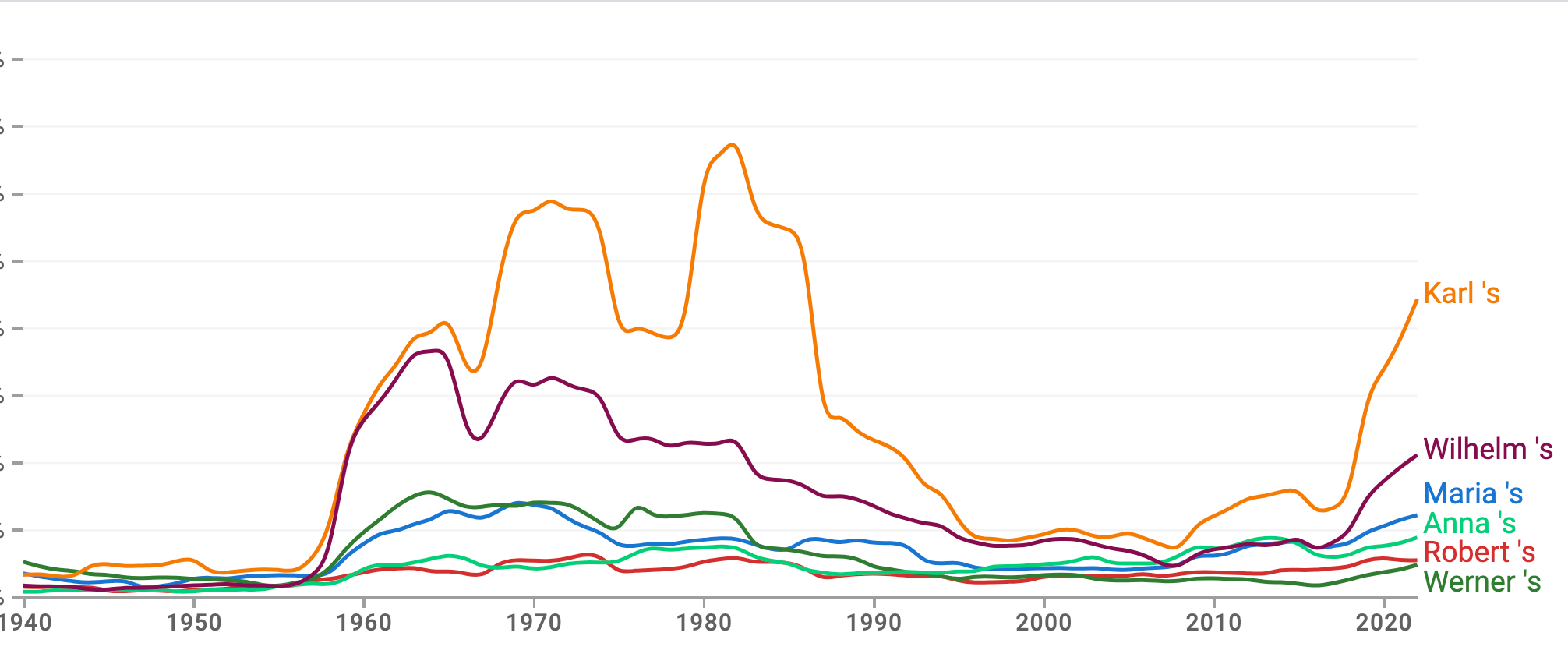"Deppenapostrophe": Is English guilty after all?
Andreas Stolcke responds to "English is innocent" (10/10/2024):
The historical facts cited are correct, but they don't explain why the frequency of 's rose in the post-WW2 period, and again after about 2005 (= the internet), as indicated by the Google Ngrams plot below.
The bump in the post-war era (after 1957) could be an effect of the Allied occupation (delayed by the book publishing process), which was reversed by the mid-1990s, and then encouraged again by the internet half a century later.
So my bet is still on an English (language) influence.
Read the rest of this entry »
